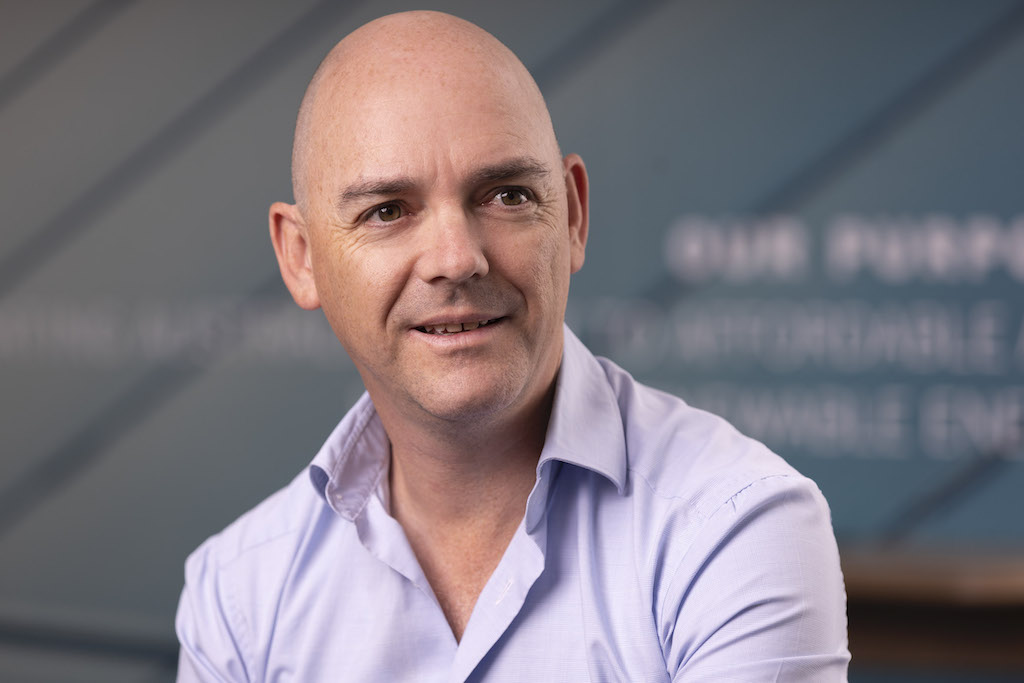Op-ed: Giving Australia’s renewable hydrogen industry a Headstart
Australia has the opportunity to become a renewable energy superpower and renewable hydrogen will be a key part of that future. ARENA CEO Darren Miller explains why.

Darren Miller is CEO of the Australian Renewable Energy Agency (ARENA)
When it comes to decarbonising our economy, Australia has the potential to punch above our weight to become a renewable energy superpower. But realising our superpower ambition requires investing today into the industries of tomorrow.
When considering an Australian response to the Biden administration’s Inflation Reduction Act and the various energy transformation packages rolling out across the globe, more often than not we are reminded that Australia couldn’t possibly compete.
However, the history of Australian innovation is rarely a history of inordinate sums of capital. Instead, we’ve played best when playing to our competitive advantages.
The government’s Hydrogen Headstart program, administered by the Australian Renewable Energy Agency (ARENA), is a timely example of Australia playing to our strengths. The program will deliver $2 billion in funding over 10 years to help Australia capitalise on its natural resource advantages to become a hydrogen heavyweight.
Australia’s natural resources are key to us achieving our renewable energy superpower vision. Our nation records the highest average solar radiation per square metre of any continent on Earth and our wind resources are among the best in the world.
Australian renewables can satisfy our domestic energy needs, as well as be harnessed to transform our economy. And that transformation will require hydrogen.
What role will renewable hydrogen play in decarbonisation?
It is true that the precise role hydrogen will play in our decarbonised economy remains unknown due to a number of factors, including the evolving nature of the technology itself.
Addressing these unknowns will require targeted investment and the right policy settings, informed by a strategy that understands the dynamic environment required to foster innovation.
In this dynamic environment, we are already seeing a refinement of the earlier thinking that suggested renewable hydrogen might provide the solutions to a vast array of energy transition challenges. However, hydrogen’s flexibility means it will play an important role in achieving our superpower vision.
Hydrogen has the potential to help decarbonise heavy industries such as steel making and alumina production. Australia’s miners are the world’s leading exporters of iron ore and the world’s largest producers of bauxite. If key markets start imposing green tariffs, as the EU did just last week, then opportunities should appear for Australia to process emissions-free products rather than just export raw materials.
Hydrogen has the potential to become a leading emissions-free fuel for powering long distance heavy land transport, planes and shipping. Together, these account for around 10 per cent of all global emissions.
Hydrogen is a key ingredient in ammonia, which in turn is vital for fertiliser production and many manufacturing processes.
All told, high potential renewable hydrogen applications could tackle up to 15 per cent of global emissions. Closer to home, hydrogen is key to preserving domestic industries, not to mention helping to create new export opportunities that could even exceed our current fossil fuel revenues.
How will Hydrogen Headstart help?
Against this background, the Hydrogen Headstart initiative will offer financial support to bridge the current economic gap for participants. It is intended to scale up green hydrogen production in Australia to allow us to compete on the global stage.
In that regard, Hydrogen Headstart is our first big step towards achieving our renewable energy superpower vision.
Achieving that bold superpower vision requires an equally bold strategic approach, but boldness will be rewarded with benefits to our economy and the climate.
The alternative is an Australia continually playing catch-up with other economies and potentially losing out as the world makes its inevitable shift to net zero.
To find out more, visit ARENA, Hydrogen Headstart.

Andrew Webster